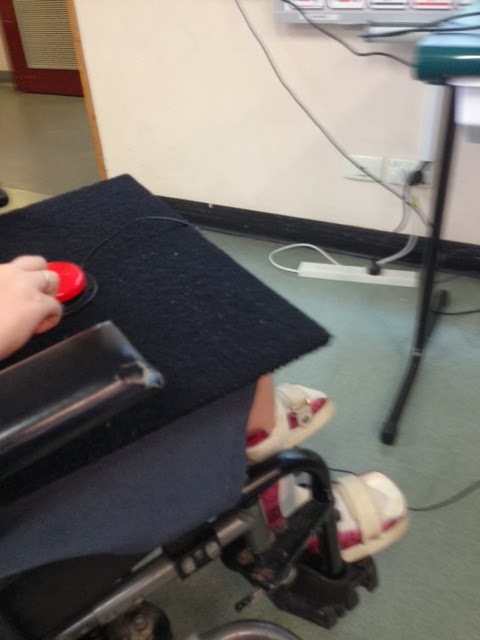But sometimes in my life I do have something that I consider interesting to say, but I still can't get the words out. I can make a lot of noise or jump around in frustration, but the words still won't happen.
This is living with aphasia.
I am still young, 21 years old and nobody looks at me expecting me to have a diagnosed disability. I hide my hemiparesis quite well, to those who are not trained to see it but the aphasia can be impossible to hide. As a result, I live with people teasing me.
People might read this and feel sorry for me. Thats not my intention. I live in Australia - a culture of friendly jabs and pokes. People cannot be teasing with malicious intent when they are unaware of what they are doing, so I prefer to take wisdom from Elsa and "let it go". There was a key example of this at Charmaine's twentieth birthday.
I had a really nice time at Charmaine's birthday. It was so nice to spend time with her, her family and friends. I was especially excited to see her sister Sam, who I don't see NEARLY enough and of course, the latest excitement, Sam's boyfriend who I had not yet met!
As soon as I met him, I liked him. Instantly. He was different from other boys she has been with in the past, but for the best reasons. I was very excited. I turned to Sam and in my excitement I tried to tell her what I though.
"I - I - I - I" I said, struggling to get my next word out - a mix of excitement and aphasia.
Sam was wonderful, as she knows almost better than anyone about my struggle and waited until I could find the word "approve" and tell her how much I approved of her boyfriend.
But in the same night, there was good-natured teasing that came from her boyfriend. Having taken a liking to Sam's boyfriend, I was chatting animatedly to him when I lost my words.
"Um, um" I said
"Yes, use your words!" He laughed playfully
There was no malice intended. How can someone be malicious without knowing what their words mean? How could he have possibly known? In the middle of the party, I wasn't about to educate him on aphasia and make him feel uncomfortable or awkward. You have to laugh at yourself sometimes. Otherwise, it'd be a never-ending pit of frustration. There is a time and a place for education and advocacy. That was not it.
I make no excuses for myself. I do not allow aphasia to control anything for me. Often, I will lose my words and be silent for a bit and end up yelling out "UGH ENGLISH!" And then move on. I like to laugh at myself. We all should. My disability is a part of me, so yes I laugh at that too. I am not bitter or broken.
In fact, I am achieving great things....










































